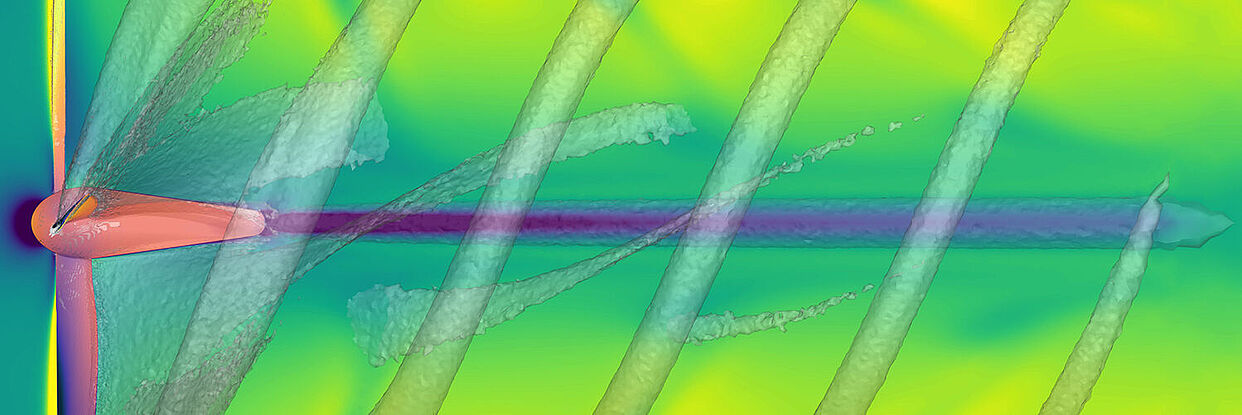

In the Cluster of Excellence SE²A - Sustainable and Energy Efficient Aviation - we are researching one of the great challenges of the future: making air transport efficient and sustainable. Scientists from the fields of aeronautics, electrical engineering, energy research and design contribute their expertise to our interdisciplinary research.
Our three main research objectives are
1. holistic assessment of the air transport system (ICA A)
2. critical technologies to improve aircraft performance (ICA B)
3. innovative energy storage and conversion for low-emission flying (ICA C).
Since the launch of the cluster in 2019, we have already achieved a lot. We have recorded a large number of research results and highly regarded publications, particularly in the field of regional and medium-haul flying. Some of the cluster's results are being further developed for application in the Collaborative Research Centre (SFB SYN-TRAC) and in aviation research projects.
The development of new solutions for long-haul flights is still a largely open field for future research, as many technological advances in short- and medium-haul flights cannot simply be transferred to the requirements of long-haul flights. This excellent research work can only be realised because SE²A, with its members and partners, has an extensive research network, supported by a unique infrastructure and its own research data management.
The infrastructure created here and the interdisciplinary collaboration between the research partners have put Braunschweig firmly on the aviation map.
The general structure of the Cluster is aligned with the research objectives. This leads us to structure the Cluster organisation in three Integrated Cluster Areas(ICAs) that reflect the mission-critical research demands and follow a coherent and coordinated roadmap. The three ICAs have a coordinated research focus with an intense exchange and integration of approaches and methods.
In addition, there may be a need to consider ideas outside the structure over the lifetime of the Cluster. Therefore, the governance process provides flexibility not only for defining new research teams, but also for establishing an additional ICA if justified by an increase in knowledge or new research ideas.

ICA A –“Assessment of the Air Transport System” focuses on system analysis and evaluation of the air transportation system in different future scenarios. These scenarios consider environmental, economic and social criteria simultaneously. Technology assessment includes noise exposure and life-cycle analysis.

ICA B –“Flight Physics and Vehicle Systems” conducts fundamental research on enabling technologies for sustainable transport aircraft with zero-fossile energy supply. These enablers are expected to be active means of load control, drastic reductions of aircraft drag, and knowledge on integrating new functions into load-bearing structures, on new materials, and on design rules for composite structures.

ICA C –“Energy Storage and Conversion” deals with the fundamentals of providing the amount of energy and energy density required for flight. There are long-term technological prospects for full electrification of regional and short-range aircraft, while long-range aircraft will continue to rely on liquid fuels characterised by high energy density. Between these distinct energy storage alternatives, there are hybrid concepts that open a new design space for adapting the aircraft to specific requirements of its mission profile and for improving overall efficiency.